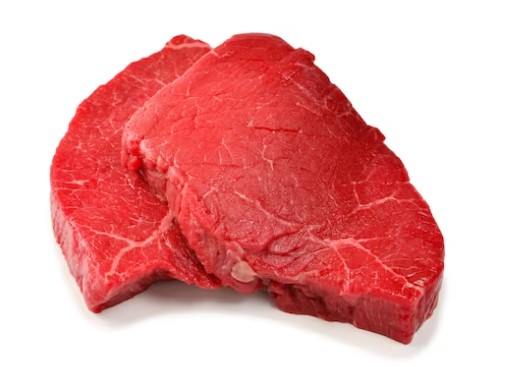

The most common symptom of a beef allergy in dogs is an itchy, inflamed skin. Other signs may include vomiting, facial swelling, diarrhea, obsessive licking or scratching, wheezing, and loss of appetite. If left untreated, a beef allergy can cause serious and even life-threatening health problems for a pup.
The cause of a beef allergy in dogs is an allergic reaction to a protein derived from beef, such as beef by-products like bone meal or beef tallow. In some cases, the reaction can be due to an ingredient other than beef, such as soya, wheat, or preservatives. As with any allergy in dogs, the symptoms will vary based on the severity of the reaction.
The diagnosis of a beef allergy in dogs typically involves a physical exam and a skin allergy test. If the symptoms are more serious, additional tests such as blood work and allergy testing may be required. Treatment typically includes avoiding all exposure to beef products, administering anti-allergy medications, and following up with your veterinarian.
A beef allergy can be a very serious allergy for dogs and can cause life-threatening health problems if left untreated. The mortality rate for a dog with an untreated beef allergy is unknown but can be serious in some cases.
Treatment of a beef allergy in dogs often involves avoiding any foods or treats that contain beef, and switching to a hypoallergenic dog food. In some cases, antibiotics or corticosteroid creams may be prescribed to reduce inflammation and soothe skin irritation, and antihistamines may be used to help ease the itching. If symptoms persist, it is important to seek out veterinary help.
Prevention of a beef allergy in dogs can be achieved through avoiding foods that contain beef, beef byproducts, and any ingredients that include beef. If a dog must eat a food containing beef, it is important to ensure that it is of the highest quality and has been processed without harsh chemicals. Healthier alternatives to beef can also be used, such as soy, lamb, or some fish. If possible, a vet should be consulted before introducing any new foods to a pup’s diet. If an allergic reaction occurs, it is important to consult a vet immediately.
A beef allergy in dogs is not contagious and cannot be passed between animals or humans. However, the symptoms of the allergy can trigger an allergic reaction in humans when coming into contact with an animal who has the allergy, such as through contact with their saliva or urine. It is important to practice proper hygiene and keep any surfaces or items in contact with an animal with a beef allergy clean and sanitized to reduce the risk of an allergic reaction.
A beef allergy in dogs is commonly mistaken for an allergy to chicken as many of the symptoms are similar.
Home remedies that can help manage a beef allergy in dogs include avoiding ingredient changes in their diet, providing short-term access to antihistamines to help reduce symptoms, applying coconut or olive oil directly to the affected area to provide calming relief, and using a veterinary-prescribed anti-inflammatory medication for more severe cases.
It is important to note that these dog allergy remedies are not a guaranteed solution and it is best to consult with a veterinarian about any questions or concerns you may have. With the right care and treatment, most allergies can be effectively managed to keep your pup feeling healthy and happy.
Some dog breeds that are known to be more vulnerable to a beef allergy are Labrador Retrievers, Pugs, Beagles, Golden Retrievers, Bull Terriers, and German Shepherds. These breeds may have an immune system reaction when eating beef or coming into contact with beef, which is why it is important to have them tested for allergies if you think they may have one. Additionally, breeds such as Boxers and Chihuahuas that have genetic mutations related to higher risk of food allergies may also have a higher risk of developing a beef allergy.
Has your pup ever experienced a beef allergy? If so, how did you cope with the situation? Did you feel overwhelmed or helpless at first? Were you able to find treatments or remedies to alleviate their symptoms? Whatever your experience was, we hope that your pup is in better health now and we wish him/her all the best in the future.